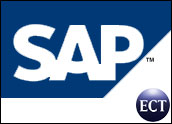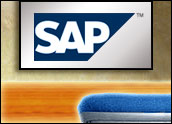
SAP turned in a strong Q2 financial report on Tuesday with results mitigated only by a drop in profits due to its acquisition of Business Objects. SAP’s net profit for the quarter was 408 million euros (US$634.9 million), a 9 percent decline from the same period last year.
Revenue was 2.86 billion euros ($4.45 billion), a jump of 18 percent from Q2 2007. Software and software-related service revenue rose 21 percent, from the 1.70 billion euros ($2.6 billion) SAP registered in the same quarter a year earlier.
The company refined its 2008 outlook to reflect projected sales at the higher end of its guidance. Now, the German software maker expects full-year non-GAAP software and software-related service revenue to grow by 24-27 percent at constant currency rates.
In summing up its performance, SAP noted that with Q2 under its belt, its worldwide share of core enterprise applications was up 33.7 percent for the four-quarter period ending June 30, 2008 — an increase of 1.1 percentage points compared with the four-quarter period ending March 31, 2008, and a 7.7 percentage point increase compared with the four quarter period ended June 30, 2007. Approximately 4.5 percentage points was attributable to organic growth and 3.2 percentage points to the Business Objects acquisition.
Investors Cheer
The market shrugged off SAP’s drop in profits as a one-time charge in the interest of longer-term gains.
“Deutsche Bank and Jeffries both upgraded SAP to Buy on the [earnings] news,” Frederic Ruffy, the senior options strategist at WhatsTrading.com, told CRM Buyer. “Investors also cheered the news, sending the stock back to levels not seen since October 2007.”
Shares were trading up $5.26, or 9.8 percent, to close at $58.98 on Tuesday.
“Overall, we achieved an excellent quarter with strong execution and strong double-digit growth,” Saswato Das, spokesperson for SAP, told CRM Buyer. “SAP is doing well in a challenging economic environment.”
Q2 was distinguished by a marked departure from the hesitancy to invest in enterprise software that hurt Q1, he added. “Instead, a lot of customers are building muscle during this period of economic downturn. Some are even accelerating projects.”
The company won a number of important new deals in the CRM space, he said.
Looming Suit
The long-runninglawsuit Oracle filed against SAP does not appear to be dissuading companies from buying SAP’s software — at least, not yet. The day before SAP announced its earnings, however, Oracle expanded the scope of its complaint with new allegations that, if proven, could hurt SAP’s reputation for innovation and service.
Last March, Oracle filed a complaint in a San Francisco federal court alleging “corporate theft on a grand scale.” SAP employees repeatedly stole copyrighted software and other confidential information, Oracle claimed in its initial filing. SAP staffers at a Texas subsidiary, TomorrowNow, posed as Oracle customers to log onto the company’s customer support Web site.
Later that year, SAP admitted “inappropriate downloads” of documents from the Oracle Web site did occur, but it maintained that Oracle suffered no harm as a result.
Oracle’s maintains that SAP pilfered the documents in order to support customers it was trying to lure away from Oracle with promises of a smooth changeover and lower support costs.
Conspiracy Charges
In its latest filing, Oracle says it realized through the discovery process that SAP’s intent was much broader. The illegal downloading, according to court papers, “is just one element of a larger scheme by SAP to steal and misuse Oracle’s intellectual property. In addition to the illegal downloads, SAP — with the knowledge of members of the SAP AG executive board of directors — made thousands of copies of Oracle’s underlying software applications on its computer systems.
“SAP warehoused Oracle’s code in ‘generic software environments’ that it used to service SAP’s customers, train employees, create fake ‘SAP’ branded fixes for distribution, and generally to support a business model that was illegal to its core. SAP continued its illegal use of Oracle’s software to develop, test and distribute SAP-branded support products for over a year after Oracle filed this lawsuit.”
The trial has been set for February 2009, assuming it is not settled in the meantime.
The allegations are serious enough that customers should think about SAP’s long-term ability to innovate and ultimately service their needs, Rebecca Wettemann, vice president of Nucleus Research, told CRM Buyer.
“SAP could suffer a huge hit to its reputation if a trial reveals that this is true. Right now, we don’t know if it is or not,” she said.
“These are allegations only,” SAP’s Das emphasized, “and Oracle is repeating many of the themes and allegations it has made in earlier versions of the complaint.
SAP will respond to Oracle’s complaint with its own filing, he added. “Our preference is not to litigate this in the press but in the proper legal venue.”























































